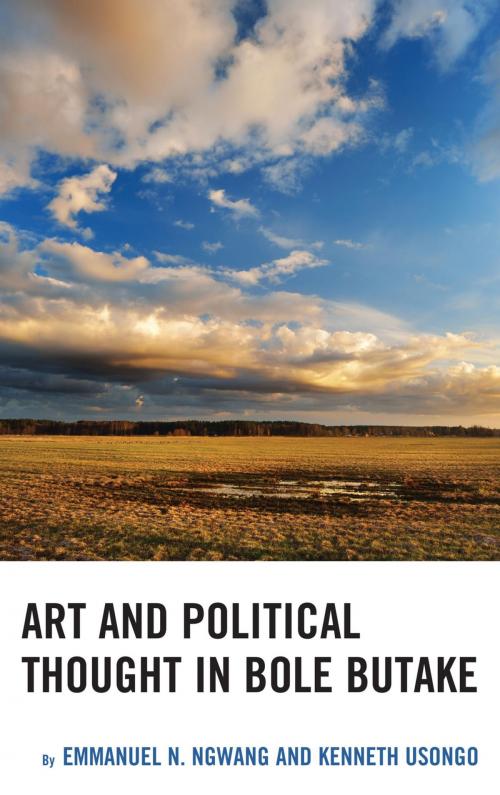Art and Political Thought in Bole Butake
Fiction & Literature, Literary Theory & Criticism, African, Drama History & Criticism| Author: | Emmanuel Ngwang, Kenneth Usongo | ISBN: | 9781498538114 |
| Publisher: | Lexington Books | Publication: | September 30, 2016 |
| Imprint: | Lexington Books | Language: | English |
| Author: | Emmanuel Ngwang, Kenneth Usongo |
| ISBN: | 9781498538114 |
| Publisher: | Lexington Books |
| Publication: | September 30, 2016 |
| Imprint: | Lexington Books |
| Language: | English |
Art and Political Thought in Bole Butake, through a pluralist critical approach, interrogates Butake’s major creative works—Lake God, And Palm Wine Will Flow, The Survivors, Shoes and Four Men in Arms, Dance of the Vampires and The Rape of Michelle —mainly in terms of their political underpinnings and cultural signification. The intention is to place his drama within the socio-political matrix of Cameroon and demonstrate the topicality of the issues of governance, marginalization, and corruption in Cameroon or Africa that Butake consistently foregrounds in his creative works.
Lake God and The Rape of**Michelle.
Lake God, for example, are projected through a supernatural frame.
The conclusion appraises the contemporaneity of Butake’s drama. His oeuvre continues to inspire so many people: from disenfranchised groups that see in his drama a path to reclaiming liberties and to critics who are challenged to hone their literary tools in the endeavor to situate his works within the dynamics of politics and culture in Africa.
Art and Political Thought in Bole Butake, through a pluralist critical approach, interrogates Butake’s major creative works—Lake God, And Palm Wine Will Flow, The Survivors, Shoes and Four Men in Arms, Dance of the Vampires and The Rape of Michelle —mainly in terms of their political underpinnings and cultural signification. The intention is to place his drama within the socio-political matrix of Cameroon and demonstrate the topicality of the issues of governance, marginalization, and corruption in Cameroon or Africa that Butake consistently foregrounds in his creative works.
Lake God and The Rape of**Michelle.
Lake God, for example, are projected through a supernatural frame.
The conclusion appraises the contemporaneity of Butake’s drama. His oeuvre continues to inspire so many people: from disenfranchised groups that see in his drama a path to reclaiming liberties and to critics who are challenged to hone their literary tools in the endeavor to situate his works within the dynamics of politics and culture in Africa.















